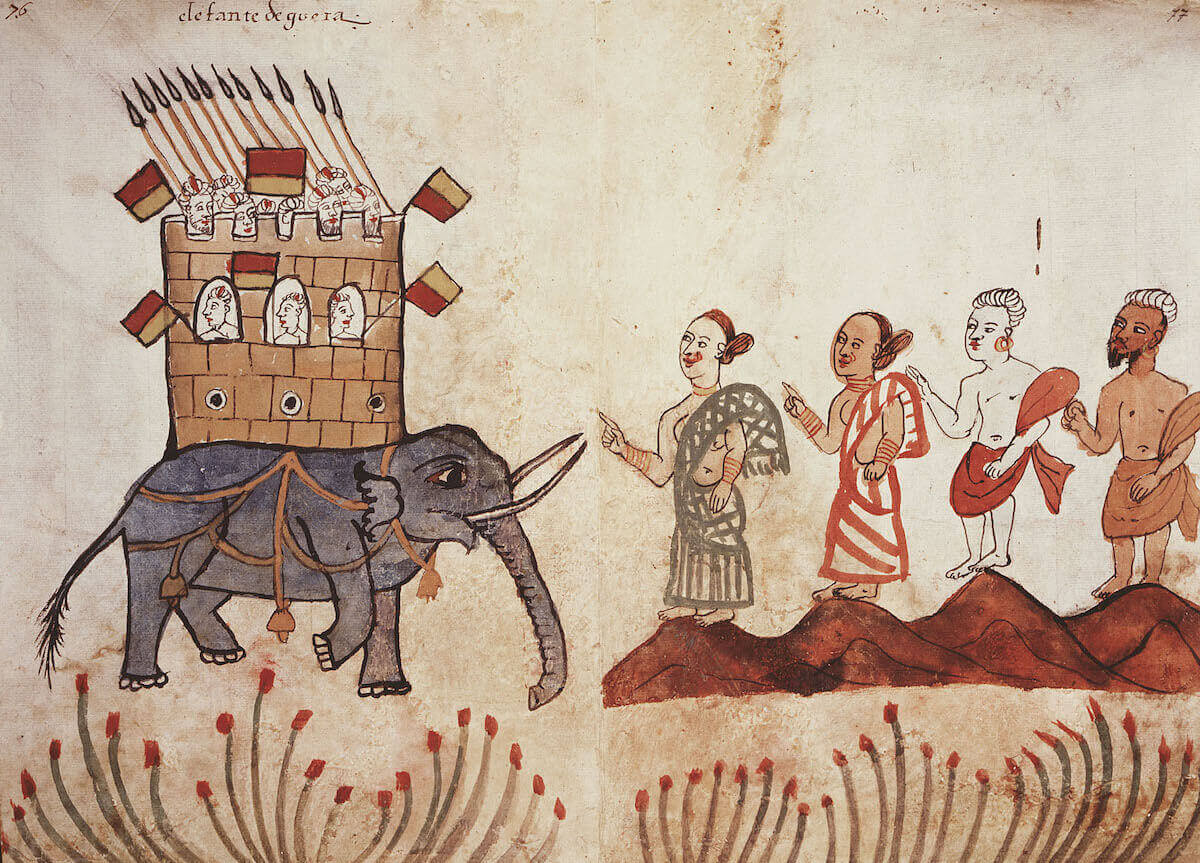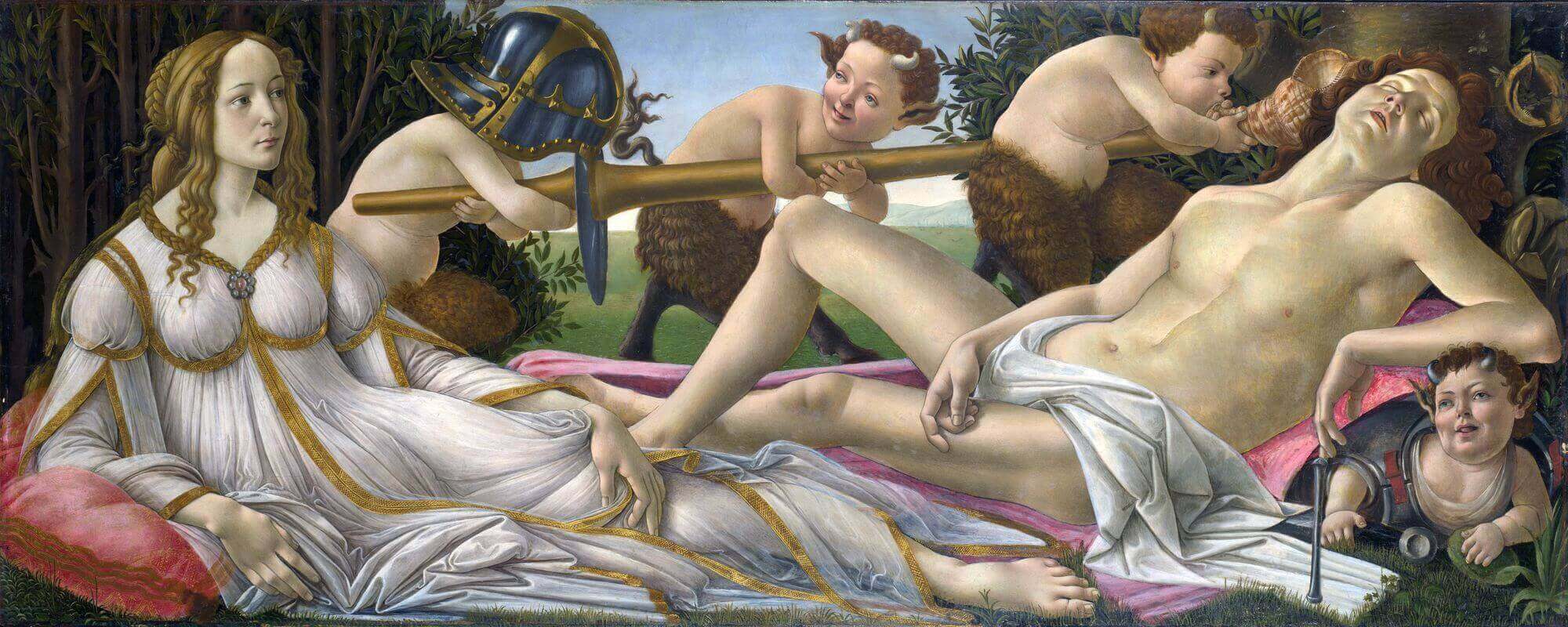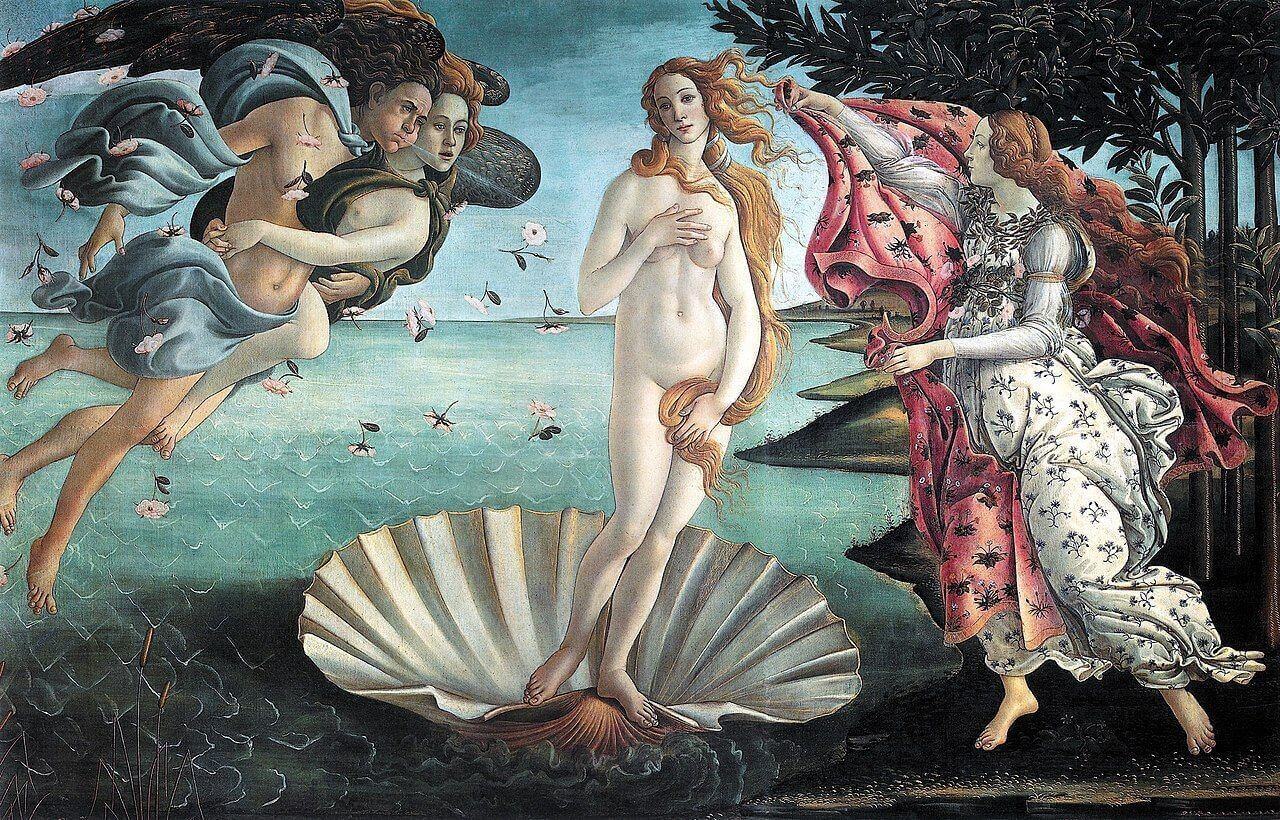Taking pleasure seriously
The Greek philosopher Epicurus is a philosopher most often associated with hedonism, the idea that the good life is a life where we should seek to maximise our pleasure. This might conjure up images of wild excess, or endless drug-fuelled orgies. And this, in fact, is how Epicurus’s opponents sometimes represented his philosophy and his community of followers. But Epicurus’s own approach to living pleasurably was more sedate than his critics imagined.
Above all else, Epicurus believed we don’t take pleasure seriously enough. For all our commitment to pleasure, he argued, we are remarkably bad at it. So the way to live better is to get smarter about pleasure.
The philosopher from Samos
Epicurus was born on the island of Samos in 341 BCE. He studied extensively, drawing on many of the traditions of philosophy in the ancient Greek world. He was taught by Pamphilus, who was a philosopher in the tradition stemming from Plato, and later by Nausiphanes, who was a follower of the atomist philosopher Democritus. He was also influenced by the philosopher Pyrrho, who argued that the goal of the philosophical life was not truth or wisdom, but instead ataraxia, or freedom from disturbance. Epicurus also took on board the ideas of the Cyrenaic philosophers, who argued for the centrality of pleasure to the good life. For many years, Epicurus was an itinerant teacher of philosophy. But in the year 307 BCE, he moved to Athens, and there he settled.
Philosophy in the garden
Epicurus bought a place outside the city limits of Athens, calling it “the Garden” (κῆπος / kipos in Greek). And there he started to teach.
Epicurus’s Garden is sometimes talked about as a philosophical “school”. But this is liable to give us the wrong impression. Instead of imagining the Garden as something like a schoolroom, we’d be better off imagining it as a kind of religious community, or a commune. It was a residential community where the followers of Epicurus lived together, as they discussed and practised their teacher’s doctrines.
Like many such communities throughout history, Epicurus’s garden was, from the very beginning, a socially disruptive experiment. He accepted both women and slaves into his community as equals, something that scandalised his contemporaries. And he advocated a withdrawal from the demands of public life.
Living slightly apart from the hurly-burly of Athenian city life, the community in the Garden was dedicated to the pursuit and exploration of pleasure. According to the later Stoic philosopher Seneca, there was a sign over the gate that read:
HERE, GUEST, WILL YOU BE WELL ENTERTAINED: HERE PLEASURE IS THE HIGHEST GOOD. [1]
But this community of pleasure was surprisingly austere: instead of being lavished with fine things, visitors to the Garden would be more likely to be met with a glass of water, some simple loaves or biscuits, and a hunk of cheese. Because, Epicurus argued, this kind of simple fare is all you need for true luxury.
Epicurus spent the rest of his life in the Garden, teaching, writing voluminously, and cultivating pleasure. He put a high value on friendship and on community. He died in 270 BCE, after going through the agonising pain of kidney stones. But contemporary accounts say he remained cheerful, capable of enjoying the pleasures of life, until the very end.
Taking pleasure seriously
This may not sound like a life dedicated to pleasure. But to understand what is going on here, you need to understand Epicurus’s distinctive analysis of what pleasure is.
Epicurus recognised that we care about pleasure. We like it. And this is entirely reasonable, because pleasure is the only thing that we can claim is, in and of itself, good. This means that all pleasure is good in itself. But some pleasures bring with them unfortunate pains, complications and side effects.
The trouble with pleasure, for Epicurus, is not pleasure itself. There is nothing better than pleasure, after all. It is that in our pursuit of pleasure, we often end up with its opposite. Our relentless search for pleasure has all kinds of unfortunate, destabilising side effects. It unbalances us and throws us off course.
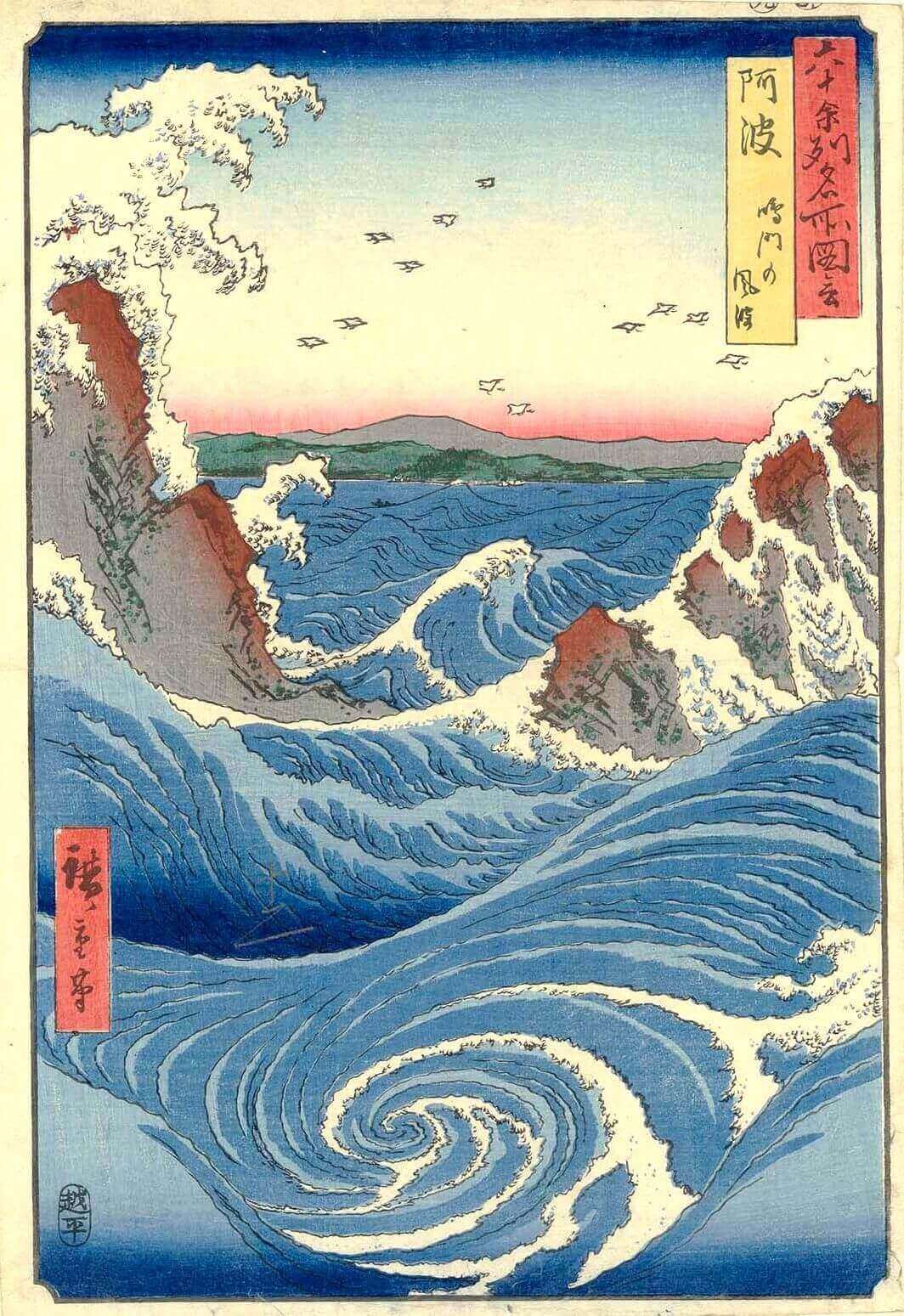 Epicurus believed that the end-goal of philosophy was freedom from turbulence or disturbance. Image: Naruto Whirlpools by Hiroshige (1855). Public Domain via Wikimedia Commons.
Epicurus believed that the end-goal of philosophy was freedom from turbulence or disturbance. Image: Naruto Whirlpools by Hiroshige (1855). Public Domain via Wikimedia Commons.
Think of the downward spiral of the film star on a drink and drugs binge. It’s not that there isn’t pleasure in bingeing. It is only that this is a pleasure that leads to a lot of pain somewhere down the line. The problem with our film star’s binge is not that an excess of pleasure damages us. It is that ultimately they have failed to think clearly about how to cultivate pleasure. They think they are making life more pleasurable, but instead, they are making it less so. In his Principal Doctrines, recorded by Diogenes Laërtius, Epicurus writes,
No pleasure is a bad thing in itself. But the things which produce certain pleasures bring troubles many times greater than the pleasures. [2]
This isn’t to say that pleasure is the only good thing in the world. Virtue, for example, is good. So too is friendship. But in the last analysis, according to Epicurus, all these things are good because they support a life of pleasure.
For Epicurus, the state of maximum pleasure is a state of ataraxia – this idea of “freedom from disturbance” that he took from Pyrrho and his followers. In all our choices, he argues, we should do what gives us freedom from bodily pain, and freedom from mental disturbance or turbulence. If we can overcome physical pain and mental turbulence, then we can attain to the most pleasurable life possible.
A pleasurable life is a life of equanimity, a life where we avoid all disturbance.
If this is the goal, then the trick is to get smart about pleasure, so we can enjoy a pleasurable, equanimous life, without any of the side effects that come from ill-advised pursuit of destabilising pleasures.
Here’s a passage from Epicurus’s Letter to Menoeceus:
So when we say that pleasure is the goal we do not mean the pleasures of the profligate or the pleasures of consumption, as some believe, either from ignorance and disagreement or from deliberate misinterpretation, but rather the lack of pain in the body and disturbance in the soul. For it is not drinking bouts and continuous partying and enjoying boys and women, or consuming fish and the other dainties of an extravagant table, which produce the pleasant life, but sober calculation which searches out the reasons for every choice and avoidance… [3]
A small measure of cheese
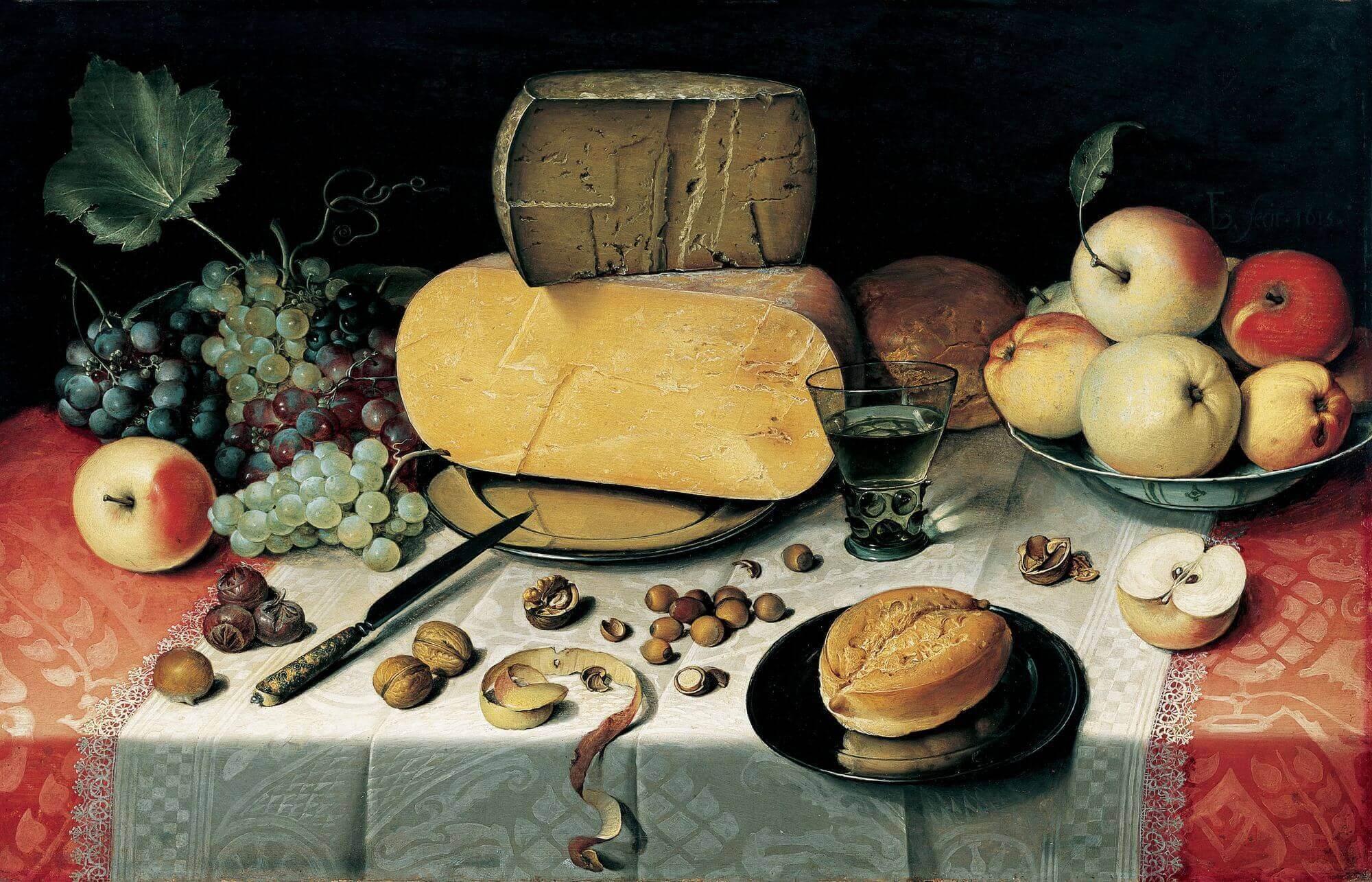 Cheese, by Folris Van Dyck, 1613. Public Domain via Wikimedia Commons.
Cheese, by Folris Van Dyck, 1613. Public Domain via Wikimedia Commons.
So to get more of a handle on pleasure, Epicurus claims, we need to look at our desires more closely. We need to sift through our desires, and think about the potential side effects of the things that we think we want. Epicurus writes:
Of desires, some are natural and necessary, some natural and not necessary, and some neither natural nor necessary but occurring as a result of a groundless opinion. [4]
There are two distinctions here: between what is natural and unnatural; and between what is necessary and unnecessary. Let’s look at them in turn.
First, the distinction between natural and unnatural desires. Natural desires are those desires that are rooted in our physical needs, and that can be satisfied. An example is the desire for food. We eat, and we are full. End of story.
Unnatural desires, on the other hand, are desires that cannot be satisfied, and that have no direct connection to our immediate physical needs. They are things we can never get enough of, things like honour, status, and wealth. We get a bit of honour, and we want more; we get some measure of status, and we want more; we come by a little wealth, and we want more. For Epicurus, unnatural desires are always destabilising. We are never going to be content if we set our heart on wealth, fame, and honour.
But here, there’s a further distinction to be made. Our natural desires can be either necessary or unnecessary.
Think about what happens if you are hungry. This is a natural desire. It is necessary that you have some sort of food. And so for Epicurus, the desire for some sort of food is natural and necessary. However, now imagine that you are fixated on having a tasty slice of apple pie as a way of sating your hunger. Your desire for a tasty slice of apple pie is natural, but it is unnecessary. After all, any food would do.
This doesn’t mean you shouldn’t go for it if an apple pie is to hand. But fixating on the apple pie as the only way to sate your hunger is destabilising: you end up scouring town for pie-shops, raging at the injustice when you find the shops are closed, and generally making your life less pleasurable.
For Epicurus, the more we can focus on our natural desires, and the more we can focus on what is only necessary, the more we can attain to a life of ataraxia, and live a life of supreme pleasure. And there is perhaps no better expression of this than the famous line from Epicurus, when he asks a friend to send him a small gift, so his desires might be met.
Send me a small measure of cheese, so that when I want to have a feast I shall be able to do so. [5]
Notes
[1] Seneca, translated Margaret Graver and A.A. Long, Letters on Ethics to Lucilius, (University of Chicago Press 2015) p. 78
[2] Brad Inwood and L. P. Gerson (translators), The Epicurus Reader: Selected Writings and Testimonia (Hackett 1994), p. 32
[3] ibid. p. 30-31
[4] ibid. p. 34
[5] ibid. p. 82
Further Reading
Books and articles
Try Luke Slattery’s Reclaiming Epicurus: Ancient Wisdom that Could Save the World (Penguin 2012). There’s also a good Very Short Introduction to Epicureanism from Oxford University Press (2015) by Catherine Wilson.
Online Resources
Read Temma Ehrenfeld’s piece on Aeon Magazine. Also on Aeon, there’s a piece by Emrys Westacott about the pleasures of the simple life and Epicureanism.

